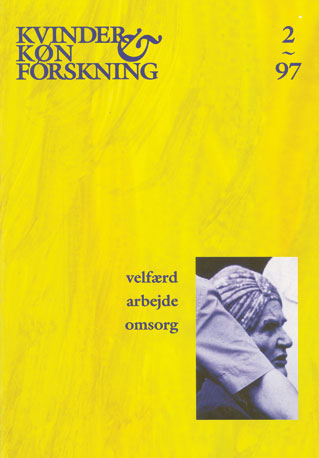Opvækst hos fædre
DOI:
https://doi.org/10.7146/kkf.v0i2.28476Resumé
After separation 6 percent of the three to five year old children live with their fathers while 94 percent live with their mothers. In this Danish study a stratified sample (N=1.137) with an equal number of fathers and mothers were selected. About 89 percent were interviewed (N=1.010). The results where that 478 fathers and 532 mothers were interviewed either by phone or personal at home. Results revealed a close association between strains on the parents and the well-being of the children. A job where parents were appreciated and probably also engaged gave the parents an extra strength to solve problems at home. Unemployed parents found themselves compelled to use different kinds of punishment against the children. Although, one third of the fathers have got the children because of the death of the mother or because the mother for different reasons were unable to take care for the cildren (alcoholism, psychiatric decease, imprisonment etc) the fathers had better jobs, less unemployment and fewer psychological problems. As a consequence they were less rough against the children than the mothers. Both parents and the grandparents make up a social network which is of great importance in the formation of children's identity. Unfortunately, this network suffer of the dissolution of the family. When the children are living with tha fathers this network are more intact that in cases were the children are living with the mothers. (The study has been published in Danish: Socialforskningsinstituttet, report 96:23)Downloads
Publiceret
1997-06-29
Citation/Eksport
Christoffersen, M. N. (1997). Opvækst hos fædre. Kvinder, Køn & Forskning, (2). https://doi.org/10.7146/kkf.v0i2.28476
Nummer
Sektion
Artikler
Licens
Udgivelser i Kvinder, Køn og Forskning er beskyttet under Creative Commons License: CC Attribution-NonCommercial 4.0

